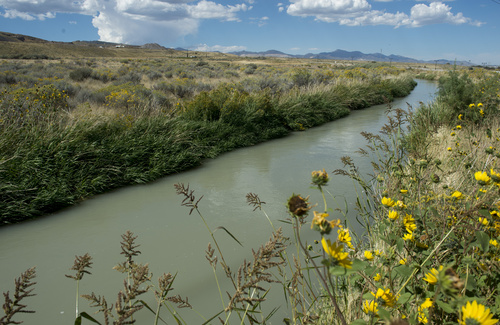This is an archived article that was published on sltrib.com in 2014, and information in the article may be outdated. It is provided only for personal research purposes and may not be reprinted.
"You'd be surprised how much it costs to look this cheap." — Dolly Parton
Water in Utah is too expensive to be this cheap.
A new report from the Utah Foundation points out something that should be obvious: Using property taxes to subsidize the delivery of water to homes and businesses in this, the second-most arid state in the nation, distorts the market and hides the true cost of collecting, treating and delivering water.
In a state that supposedly values free-market principles as much as Utah does, it might be surprising to learn that our water utilities are shielded from passing their true costs of operation through to their customers.
It is more surprising to learn that, according to the experts at the Utah Rivers Council, ours is the only state where that socialistic practice is found.
Elsewhere, both the capital costs of water treatment and transmission facilities and the daily operating costs of treating and pumping water are generally covered by wholesale or retail water bills. That is the best, if not the only, way of giving consumers the incentive to use only so much water as they need, because using more will cost them money they didn't need to spend.
Such a practice also shields the many water customers that are exempt from property tax — governments, universities, churches — from paying the full cost of the water they use, often in large quantities to water their expansive lawns and gardens.
It is not uncommon, in fact, for the situation to be the other way around. In some other states, cities funnel revenue from their water utilities into their general fund budgets, a practice justified by the fact that management, clerical and IT overhead of a city's administration is shared by both general government and enterprise funds such as water utilities.
Really expensive water projects — such as the Central Utah Project — often benefit from larger federal grants. And advocates for other giant capital projects — such as that boondoggle of boondoggles, a proposed pipeline from Lake Powell to St. George — hope to win more such infusions of somebody else's cash, so as to hide the real cost of their projects and make them attractive to Utah-style water hogs.
But we would be so much better off, ecologically and financially, if the bills we paid for our water reflected the true cost of providing it. That should encourage a much-needed embrace of conservation as the water project that would do the most good.



